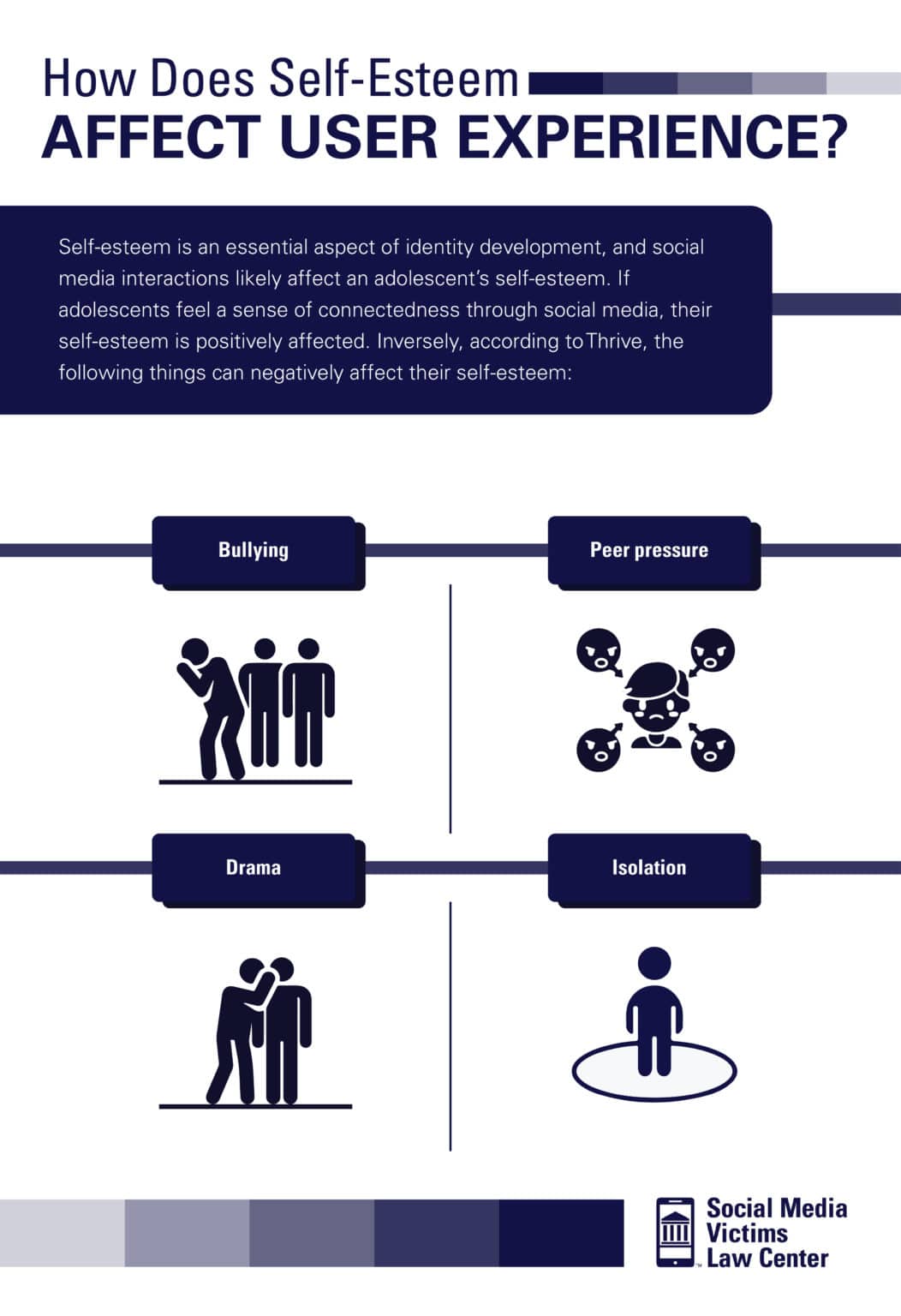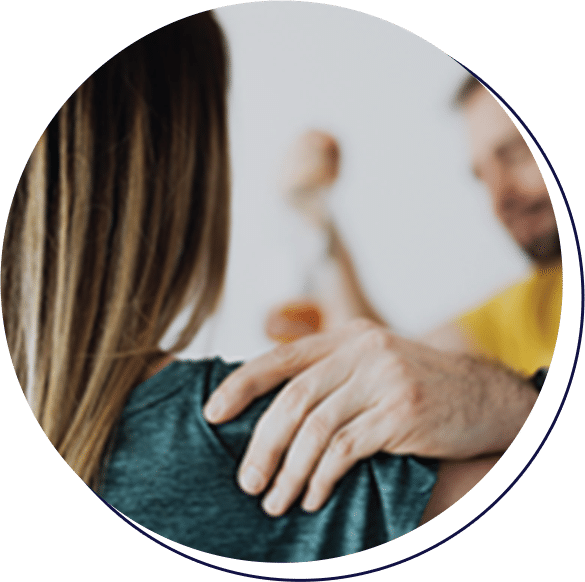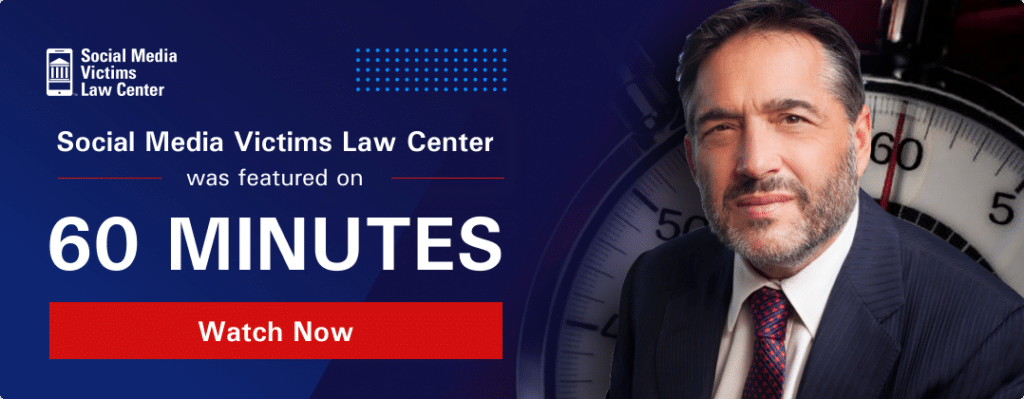Social Media & Anxiety
Studies show that excessive social media use and exacerbated mental health issues correlate in several ways. One study, published in the Canadian Journal of Psychiatry, indicates that higher screen time directly correlates with higher anxiety levels.

 Written and edited by our team of expert legal content writers and reviewed and approved by Attorney Matthew Bergman
Written and edited by our team of expert legal content writers and reviewed and approved by Attorney Matthew Bergman
- Content last updated on:
- October 2, 2025
Written and edited by our team of expert legal content writers and reviewed and approved by

- Content last updated on:
- October 2, 2025
According to an Australian study, social media screen time tends to be more damaging than other types of screen time. Other studies indicate that anxious people tend to gravitate to social media, using its effects as they would a sedative. However, they encounter other stressors while on social media, resulting in increased stress, according to a Texas State University study.
About 90 percent of teens use social media, and two-thirds of them access it via mobile phones. While moderate social media use can positively affect teens, it can also affect them negatively. About 16 percent of high school students experience cyberbullying, and cyberbullying is particularly prevalent on social media, according to the U.S. government website, StopBullying. Cyberbullying can be particularly harmful because it is difficult for adults to recognize, the site says. Another closely-related danger is cyberstalking, which can be equally as traumatic for the victim and can even end up endangering family members and close friends as well.
Also, statistics suggest a correlation between the rise in social media use and mental health issues. The Centers for Disease Control statistics show that the number of suicides has increased 57 percent from 2007 and 2018. This increase in suicides coincided with a rise in teen social media use. A Pew Research Center study found that 55 percent of teens used social media in 2006, but over 81 percent were using it years later.
If social media has negatively impacted your teen’s mental health, it’s important to understand your legal options.

Social Media as an Extension of Self-Identity
One way social media may affect teens is in their development of a self-identity. According to a Northwestern University blog, having an online presence may influence an individual’s self-understanding, especially among those who grew up sharing aspects of themselves with their friends on social media.
A survey of 300 people who used multiple social media sites demonstrated that they felt good about themselves if someone “liked” their post and that positive feedback helped validate the online identity they presented.
The results suggested that users would continue to use that identity offline following validation. Results also indicated that social media users gauge whether topics are relevant to their peers based on external feedback.
How does self-esteem affect user experience?
Self-esteem is an essential aspect of identity development, and social media interactions likely affect an adolescent’s self-esteem. If adolescents feel a sense of connectedness through social media, their self-esteem is positively affected. Inversely, according to Thrive, bullying, peer pressure, drama, and isolation are all likely to fuel negative feedback.

According to a Harvard Graduate School of Education blog, social media can contribute to alienation. Adolescents with underdeveloped self-esteem who use social media primarily as a gauge of popularity often are negatively affected.
Teenagers who already have anxiety challenges tend to suffer the most damaging effects of social media. For example, individuals with Generalized Anxiety Disorder, who tend to compare themselves unfavorably with others, will become even more anxious because of social media comparisons.
Body image is a critical factor for many young women. A study in Body Image demonstrates that social media interactions with attractive peers can increase a young woman’s negativity about her body image. The effects of this negativity are more pronounced in young women who already lack a positive body image.
Social Media Addiction and Social Anxiety
Teens repeatedly come back to social media, even if they receive negative feedback. According to a Stanford Medicine blog, their brains release dopamine when they make connections with others, and dopamine creates the need to return again and again.
This continual return to social media leads to addiction. Teens can experience withdrawal if they abruptly stop using social media, according to a May 2017 study. In turn, they will often grow even more anxious and depressed as a result.
Social Media Bullying Contributing to Anxiety Disorders
Social media bullying can contribute to anxiety disorders. Social anxiety disorders encompass a fear of social situations where the sufferer faces public scrutiny. Young adults who suffer from social anxiety disorders may fear rejection or humiliation in cases where others may not, according to a Penn State blog.
The average age of onset for a social anxiety disorder is 13, and onset typically occurs after an embarrassing or humiliating experience. Many adults who suffer from social anxiety disorders report a history of bullying or teasing in childhood, according to a study in Cognitive Behavior Therapy.
Bullying on social media, in particular, also significantly influences the onset of anxiety in children, according to a study published in Frontiers in Psychology. The study of 456 children ages 11 to 13 also found that girls were more prone than boys to experience the onset of various types of anxiety, including “panic disorder, generalized anxiety disorder, separation anxiety disorder, and social anxiety” from social media bullying.
Preventing Social Media Anxiety in Teens
Despite all the negatives associated with social media, these platforms can positively contribute to people’s lives. They can help teens foster social interactions, raise awareness about social concerns, and share moments of joy. The key is to help teens manage social media use and discourage unhealthy thought patterns.
Parents can help prevent social media anxiety in teens without overreacting, according to a Social Media and Teen Anxiety article published by the Harvard Graduate School. Parents can do this by paying attention when their teen is irritable or anxious. “Check in with your teen,” the article says. It suggests validating the teen’s feelings about the difficulty of the situation while supporting them and helping them problem-solve.
Taking the teen’s phone away is unlikely to solve the problem and result in more anxiety. Instead, parents could work with teens to establish screen-free times during dinner, an hour before bedtime, or during a family vacation. The Harvard article says that teens also model their parents’ tech behavior, so parents should be good role models about balancing screen time with other aspects of their lives.
Parents also might consider participating in online activities with their teens, such as games or reading particular articles. Discussing social media expectations with the teen is also essential. One idea is to establish a family technology contract, which both parents and teens respect.
According to a study published in Frontiers in Psychology, a written agreement and honest communication will build trust much better than constant parental surveillance. The goal for parents is to guide their teens toward learning when to put the device aside on their own, rather than seeking to control social media habits.
If you believe your child has already been harmed by the effects of social media, please contact us for a free consultation.
Frequently Asked Questions
For individuals and children who have been
We only handle cases on a contingent fee basis. This means that we are paid a portion of any recovery obtained in the case and you do not owe us any attorneys’ fees if the lawsuit does not result in a recovery.
Every case is unique. Our attorneys will work with your family to evaluate your potential case and help you evaluate whether filing a lawsuit or other legal proceeding is in your family’s best interest. Generally speaking, the types of cases we handle involve serious mental health effects, including attempted or completed suicide, eating disorders, inpatient mental health treatment, or sexual trafficking/exploitation that was caused by or contributed to through addictive or problematic social media use by teens and young adults.
We are a law firm based near Seattle, WA comprised of lawyers who have spent their entire careers representing victims who have been harmed by dangerous products. We are also parents. Shocked and troubled by the recent revelations about the harm caused to teens and young adults by social media platforms, which powerful technology companies have designed to be highly addictive, Social Media Victims Law Center was launched specifically to help families and children who have suffered serious mental harm or exploitation through social media use to obtain justice.
Contact Us Today
Related Pages
Client Testimonials
Is Your Child Addicted to Social Media?
You Are Not Alone.
We have helped hundreds of families just like yours whose children and teens were affected by social media addiction.
Explore Popular Topics

Addiction

Suicide

Eating Disorders

Anxiety

Bullying

Sexual Abuse

Body Image


